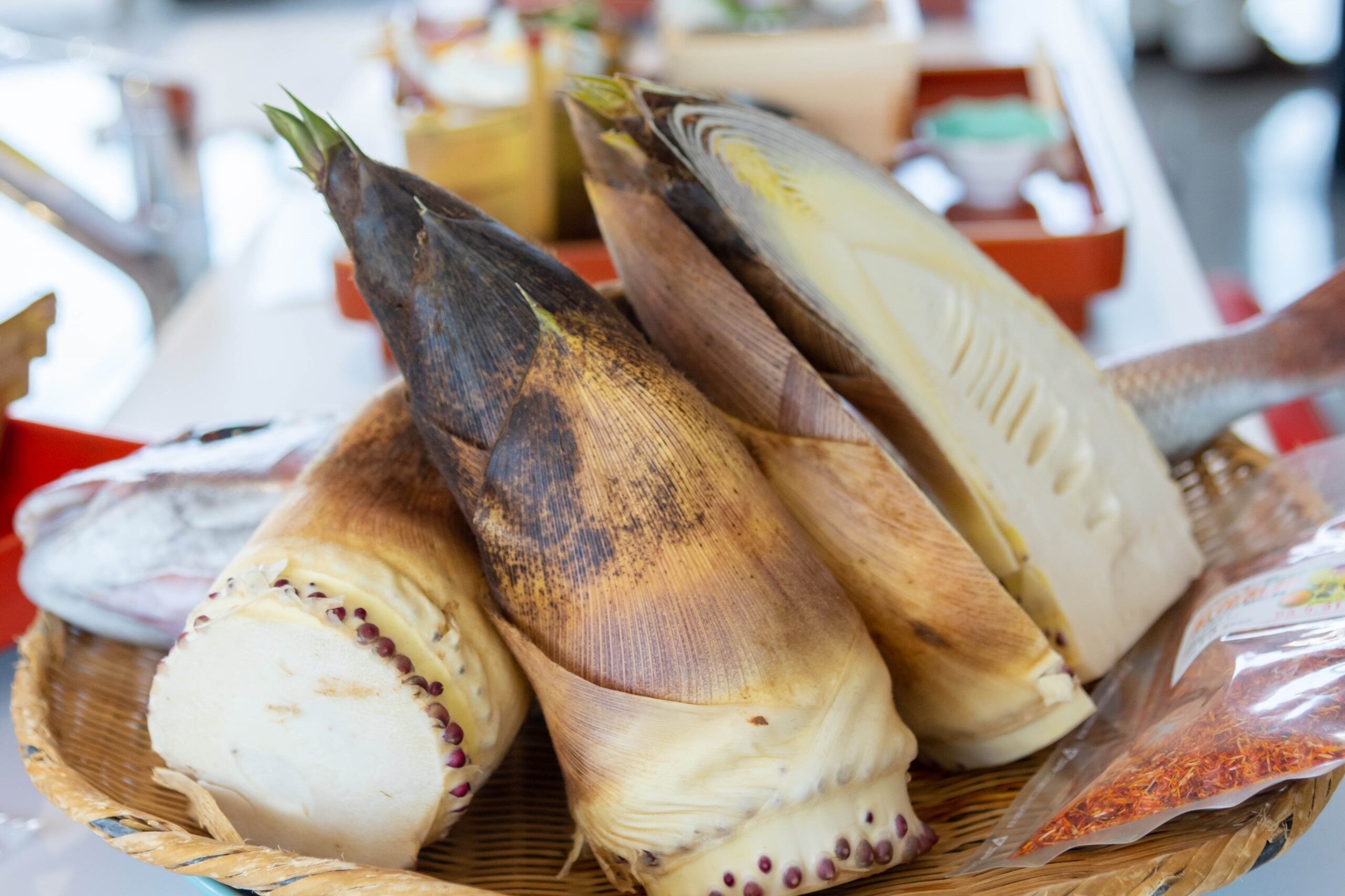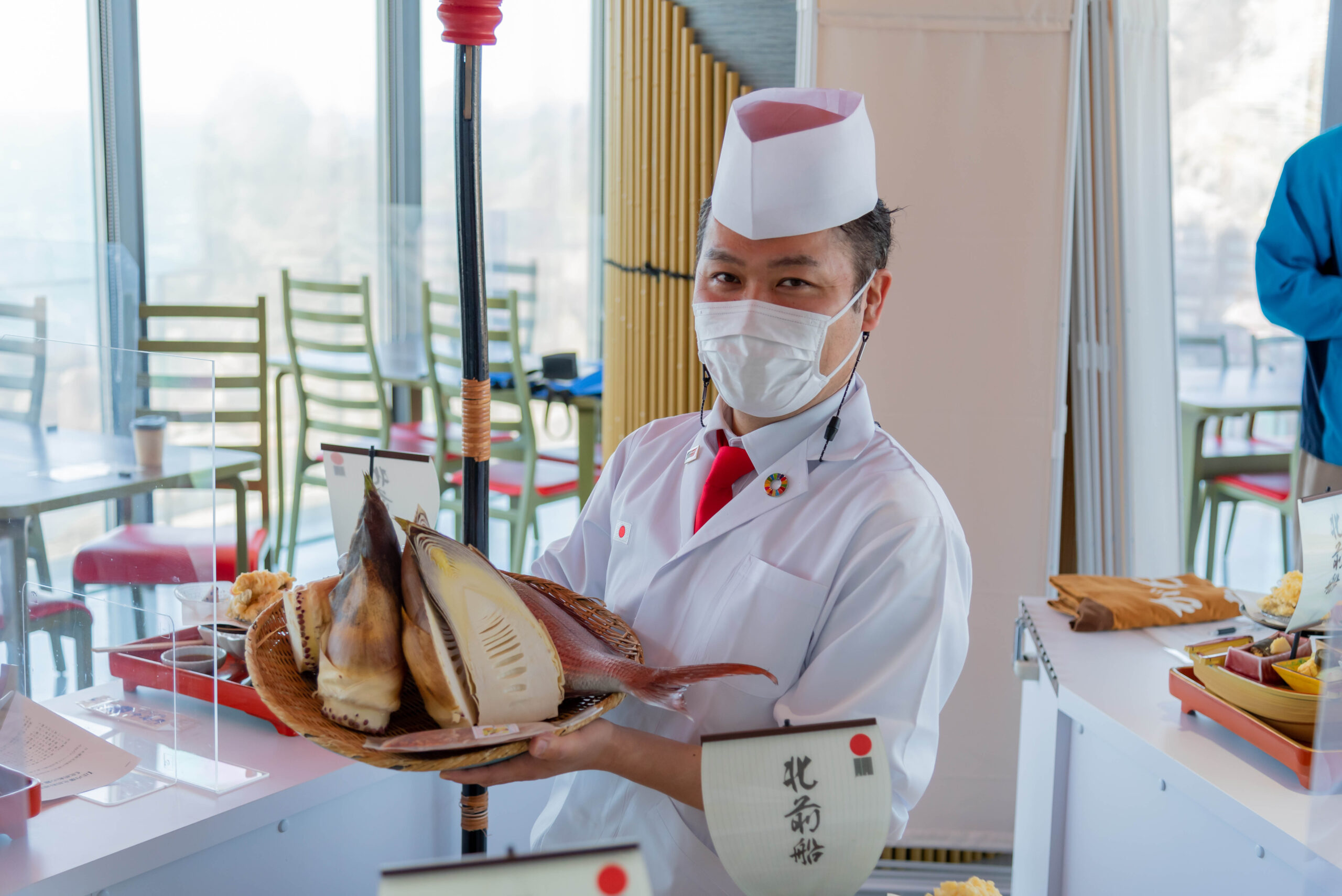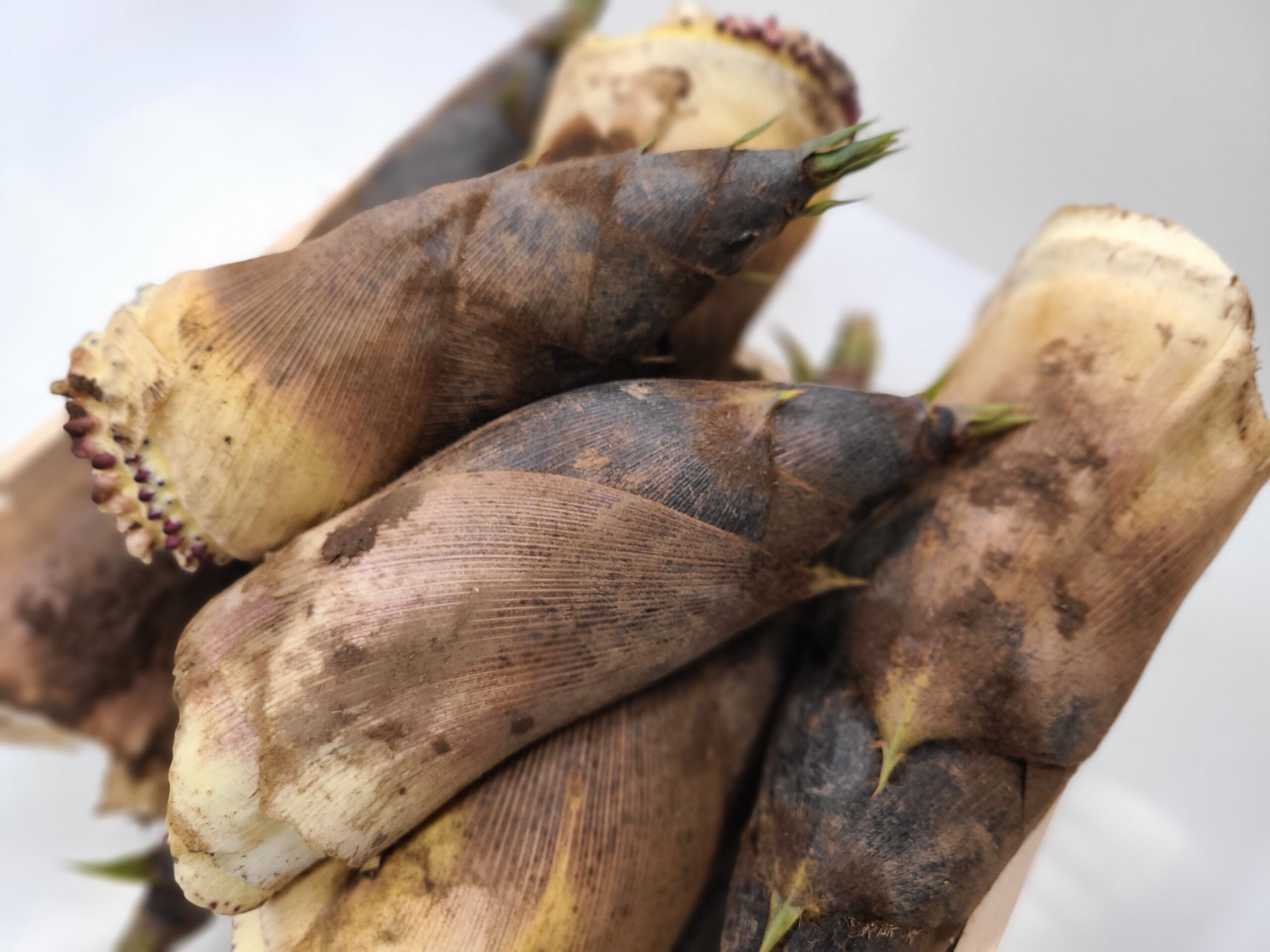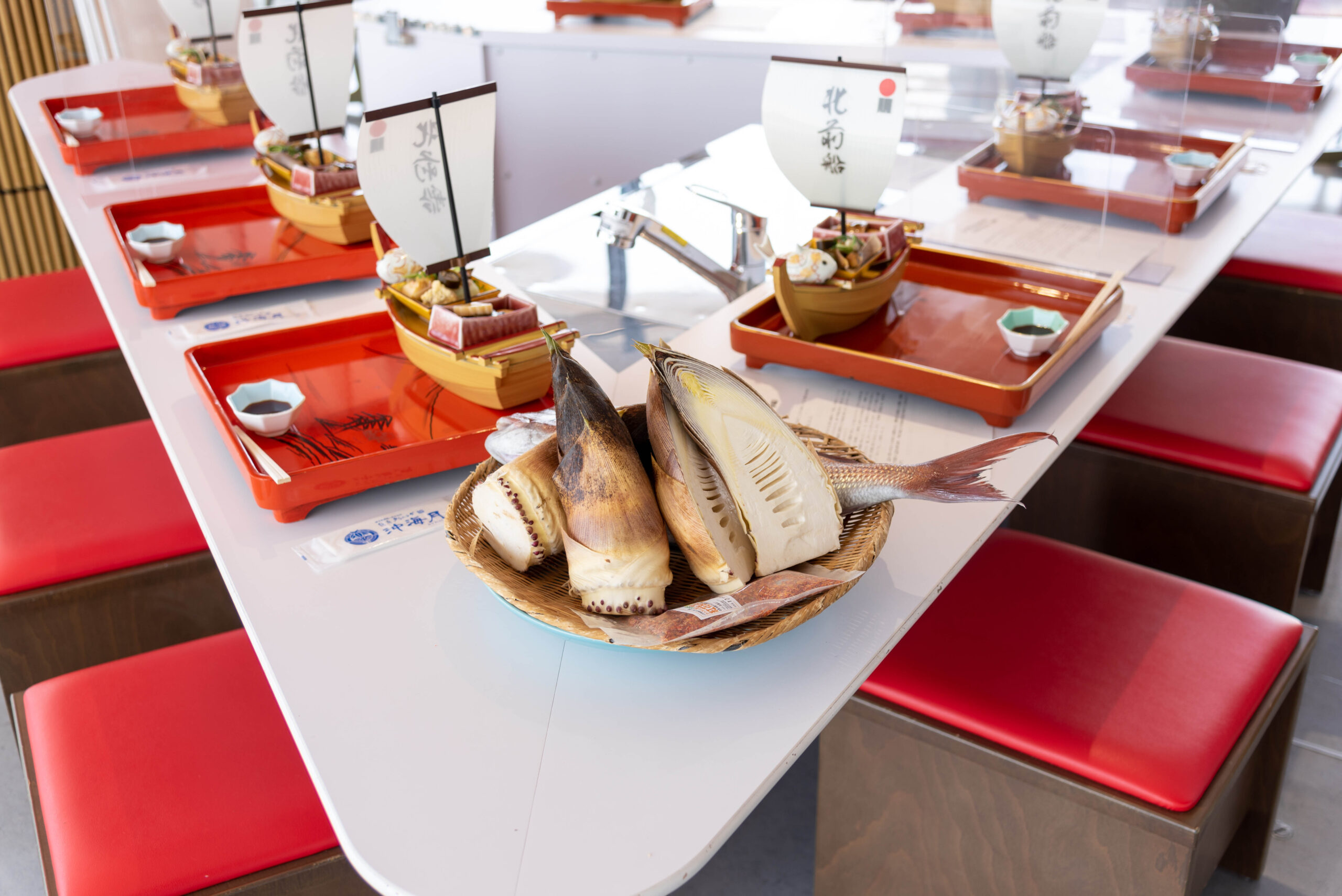
Moso bamboo 孟宗
“Indigenous crops” refer to vegetables, fruit trees, grains, and other crops that have been cultivated for many centuries in a particular region and have been embraced by the local people to keep its genetic uniqueness intact. Indigenous crops have long supported our daily lives and played a significant role in preserving the unique cultural heritage of the region. In Shonai and Tsuruoka, as many as 60 varieties of indigenous crops have been identified, serving as biological resources with genetic diversity. These crops are not only valuable for their agricultural heritage but also for the transmission of cultivation techniques and culinary traditions. They are considered “living cultural heritage” to be passed down to the next generation, and various projects are underway to ensure their continuation.
One such indigenous crop is the “Moso Bamboo Shoot.” These high-quality bamboo shoots can be eaten without the need for debittering. They have a mild flavor and a soft, tender texture. While there are different theories about their origin, some suggest that they were brought back by ascetics from Kyoto on northern-bound ships and planted in temples and shrines. In Shonai, they are commonly enjoyed as “Moso-jiru Soup,” cooked with thick-fried tofu, shiitake mushrooms, miso, and sake lees. This dish has become a beloved springtime tradition in the region.
The Moso bamboo has a crunchy texture with a spicy aftertaste.



